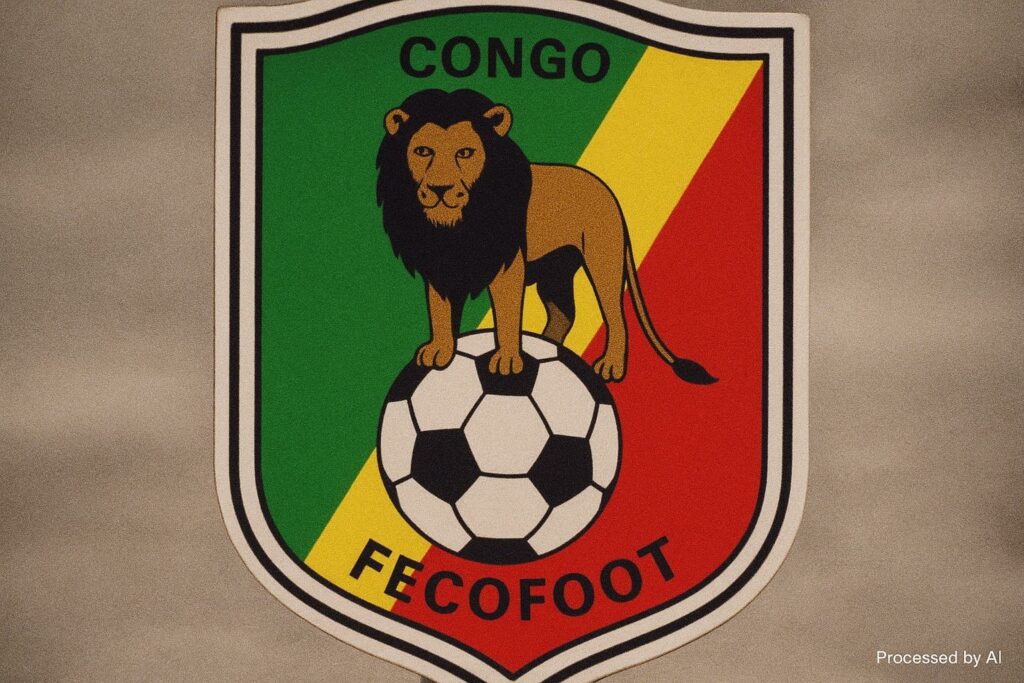Domestic Talent at the Forefront
In the carefully tiered architecture of African football, the African Nations Championship (CHAN) remains the only continental tournament reserved exclusively for home-based professionals. For the Republic of Congo, whose senior side traditionally draws on a global diaspora, the so-called Congo B selection provides a laboratory for cultivating domestic expertise while projecting a distinctive brand of sporting sovereignty. Federation officials in Brazzaville routinely underline that the squad, colloquially dubbed the Diables Rouges locaux, functions as a showcase for the national league’s competitive depth, a point reiterated by the Fédération Congolaise de Football (Fécofoot) during a recent press availability (Fécofoot, March 2024).
Beyond serving as a proving ground for emerging players, the Congo B project dovetails with broader government objectives of strengthening youth employment and nation-building through sport. The renovated Alphonse-Massamba-Débat Stadium, partially financed via a public–private scheme announced in 2022, offers tangible evidence of that policy continuum. In diplomatic circles, the administration’s sustained attention to football infrastructure is often interpreted as soft-power signalling, a means of framing Congo-Brazzaville as a stable partner within Central Africa’s occasionally turbulent security environment.
Recent Form Signals Tactical Maturity
A narrow 2-1 triumph over Equatorial Guinea B in December 2024 capped a qualifying series that exhibited both composure under pressure and incremental technical refinement (CAF match report, 30 December 2024). While the aggregate margin was modest—preceded by a goalless draw a week earlier—the tie confirmed coach Isaac Ngata’s ability to make pragmatic in-game adjustments, notably a late switch to a double-pivot midfield that freed creative fulcrum Guy Mbenza to operate between the lines.
Those adaptations marked a departure from the conservative 4-4-2 alignment that had yielded mixed results at the 2023 finals in Algeria, where Congo B drew Niger B and lost narrowly to Cameroon B before an early exit (Futbol24). Analysts at the International Centre for Sports Studies (CIES) nonetheless argue that the paucity of goals conceded—one in three tournament fixtures—underscored a defensive solidity unusual for a squad assembled almost entirely from domestic clubs.
Friendly matches in Dakar and Antananarivo earlier in 2023 offered additional diagnostic data. Defeats to Senegal B and Cameroon B exposed challenges in aerial duels, yet a clean-sheet victory over Madagascar B revealed the squad’s aptitude for disciplined pressing when afforded sufficient recovery time. Such episodic growth, albeit uneven, suggests that the technical staff’s insistence on video analytics and sports-science protocols is bearing early fruit.
Group D Dynamics before Kick-off
As the tournament calendar edges toward 5 August 2025, Group D remains statistically uncharted—every participant enters with zero points. Yet each opponent presents a distinct test bed. Nigeria, bolstered by talent from the Nigeria Premier Football League, retains a reputation for athletic dominance. Senegal’s domestic league, energised by sustained private investment, supplies a conveyor belt of physically robust forwards. Sudan, for its part, often flies below the continental radar but has historically excelled at collective transitions.
Congo B’s itinerary—Sudan first in Brazzaville, Senegal in Saint-Louis, and Nigeria in Abidjan following CAF’s zonal hosting model—offers strategic advantages. A positive opening result could recalibrate the psychological equilibrium of the group. In a media briefing, Captain Rahim Ossete emphasised that “starting at home reinforces our confidence; it allows us to impose tempo rather than chase it.” His view finds support in a recent CIES comparative study indicating that CHAN teams securing at least one win in their first two matches advance from the group phase 71 percent of the time.
Institutional Backing and Soft Power
Football in Congo-Brazzaville has historically enjoyed presidential patronage dating back to the country’s 1972 African Cup of Nations triumph. Current infrastructure initiatives—including a high-performance centre in Oyo and scholarships for coaching licences in Casablanca—signal continuity rather than rupture with that lineage. In diplomatic arenas, Brazzaville’s investment in sport is quietly acknowledged as a contribution to sub-regional stability, complementing the nation’s mediation roles in neighbouring crises.
International partners have taken note. The French Development Agency renewed its technical assistance protocol with Fécofoot in 2024, citing “encouraging governance metrics”. Meanwhile, CAF selected Brazzaville to host a refereeing seminar this April, an implicit vote of confidence in local organisational capacity. Such gestures, modest in scale yet symbolically potent, expand the country’s room for manoeuvre in multilateral forums without inviting overt politicisation.
Prospects Toward 2025 and Beyond
With final preparations entering their decisive phase, the technical staff must juggle club commitments, injury mitigation and acclimatisation to varying climates across the host cities. A provisional 29-man list is expected by late May; insiders suggest a blend of seasoned domestic campaigners from Diables Noirs and AS Otohô alongside under-23 prospects blooded during the last Francophone Games.
Success at CHAN rarely translates directly into FIFA ranking points, yet its reputational dividends can be considerable. Scouts from Ligue 1 and the Turkish Süper Lig were present during Congo B’s qualification matches, illustrating that individual breakthroughs could accrue to national prestige. Beyond the immediate horizon, Fécofoot has mooted the idea of leveraging the CHAN platform to bid for a future CAF youth tournament, thereby institutionalising the developmental gains wrought by the current cycle.
In aggregate, the evidence suggests that Congo B approaches the 2025 edition with an unusual mix of humility and quiet confidence. Defensive structure appears sound, creative options are broadening and institutional scaffolding remains robust. In the calibrated lexicon of diplomacy, Brazzaville is positioning its home-grown footballers not merely to compete but to narrate a story of orderly progress—an argument that resonates far beyond the touchline.

